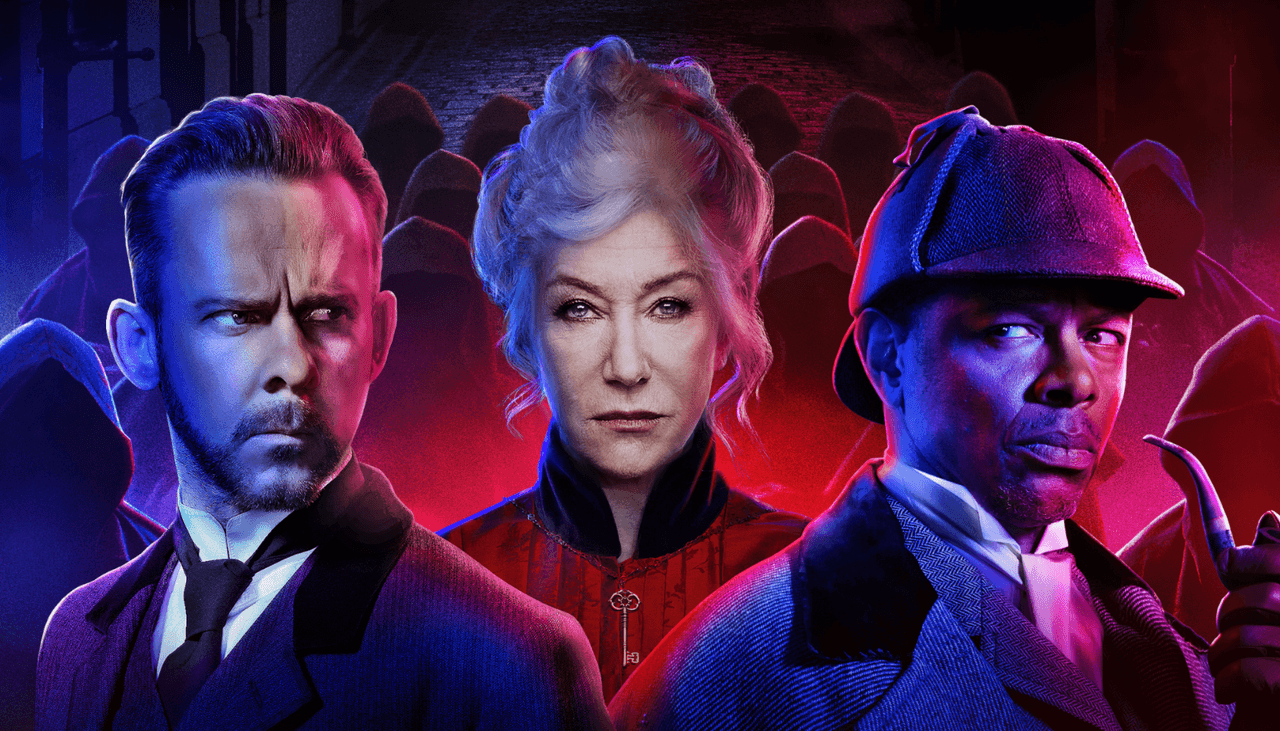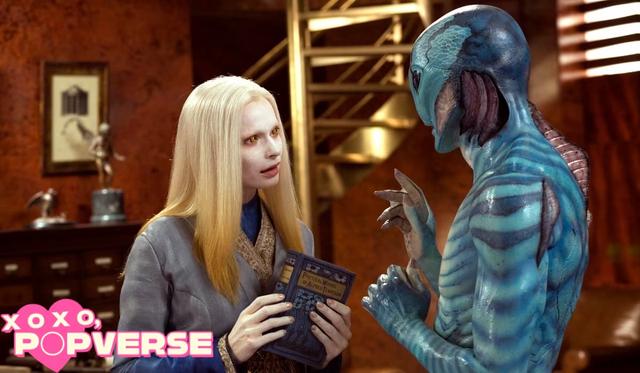If you click on a link and make a purchase we may receive a small commission. Read our editorial policy.
Audible's Moriarty podcast understands what makes Arthur Conan Doyle's arch-villain survive
Season Two, The Silent Order, continues a 130-year cultural obsession with Sherlock Holmes's nemesis. But why does he continue to fascinate?

Last Thursday, November 9, I met the Napoleon of Crime.
It was at Chapel Bar in Manhattan, where Audible was celebrating the release of their latest Sherlockian thriller, Moriarty: The Silent Order. It was an evening of mystery and malevolence, an immersive experience where actors in turn-of-the-century garb mingled with the crowd, passing notes, forming alliances, and swearing us to secrecy.
At the end of the evening, the crowd gave way to two hooded figures who approached the center of the room. With impressive panache, the men disguarded their disguises, revealing themselves to be Phil LaMarr, the podcast's Sherlock Holmes, and Dominic Monaghan, who plays the titular arch-criminal himself. And I've got to say, for someone born in 1893, the Professor was looking quite well.
But is that a surprise? Moriarty is as healthy as ever, with two seasons of Audible podcasts, a bestselling 2015 novel, and a hit manga-turned-anime all bearing his name. 'What's his secret?,' you might ask. What did Arthur Conan Doyle do to ensure his supervillain would last over a century?
Well, if you want my opinion, it's what he didn't do that matters.
Let's go back to Moriarty's first appearance, The Adventure of the Final Problem. In it, Sherlock tells Watson that Moriarty is a master criminal, but the thing is, this is the very first time we've heard of his crimes. For all of Sherlock's adventures before this one, he never thought to bring the professor up. Sounds a little odd for London's premiere criminal expert, no?
Conan Doyle brings Moriarty back for only one more adventure, a prequel story called The Valley of Fear. After that, he's only mentioned a few more times, leaving this master malefactor with, at most, a pittance of canon history, especially compared to his deductive rival. But was the lack of background really such a bad thing? Not at all.
Hell, it couldn't have gone better if Moriarty planned it himself.
After Conan Doyle's death, every other person that's handled Moriarty has essentially needed to build their own character; there was so little in the original text to go off of. This has lead to a mosaic of Moriartys: think of Sherlock (the show)'s music-loving psychopath, Elementary's artistic prodigy, or Star Trek's holographic puppeteer. They're all equally Moriarty, but they couldn't be more different.
In Audible's case, Moriarty is an innocent man forced into the criminal underbelly, who uses his mathematic prowess to become its king (kind of a Victorian Walter White). To be fair, the podcast does dipense with the canon, but for the same noble (or rather, ignoble) purpose every other Sherlock writer does: to create its own, unique Napoleon of Crime.
Perhaps if Conan Doyle had expanded on Professor Moriarty, he wouldn't be the diva of dastardliness that he is today. Rather than a neatly wrapped, understandable antagonist, the author left us with an enigma, ever changing, ever plotting, ever a step ahead. A mystery that will never be solved.
Moriarty: The Silent Order is available for listening on Audible now.

Speaking of arch-villainy, Tiffany Babb's got thoughts on who is the biggest Marvel villain of all time. The answer, as they say, may surprise you.
Follow Popverse for upcoming event coverage and news
Find out how we conduct our review by reading our review policy
Let Popverse be your tour guide through the wilderness of pop culture
Sign in and let us help you find your new favorite thing.
















Comments
Want to join the discussion? Please activate your account first.
Visit Reedpop ID if you need to resend the confirmation email.